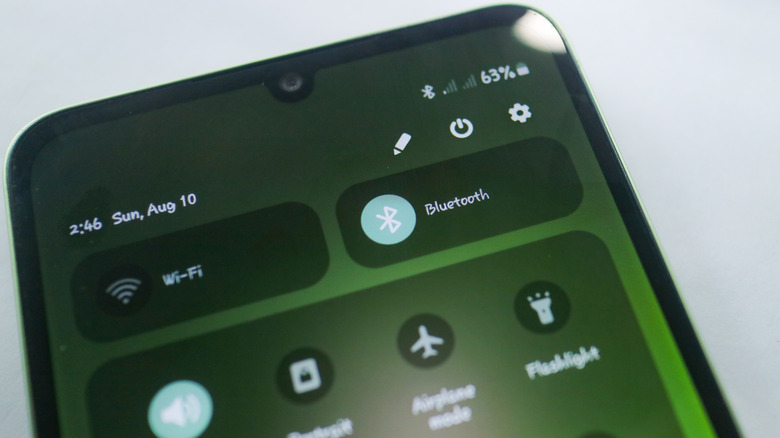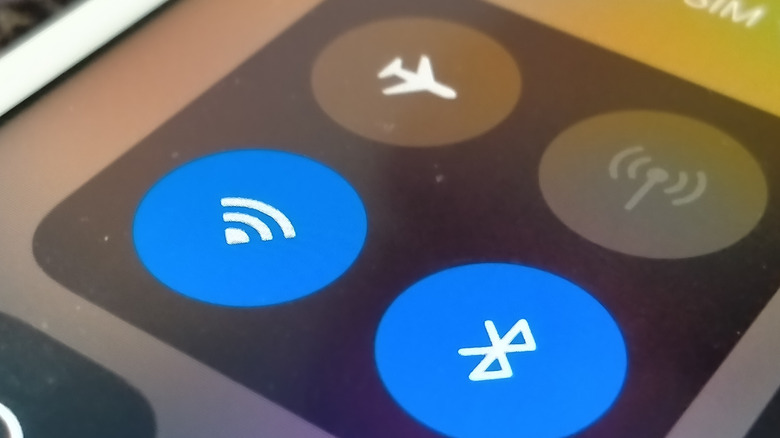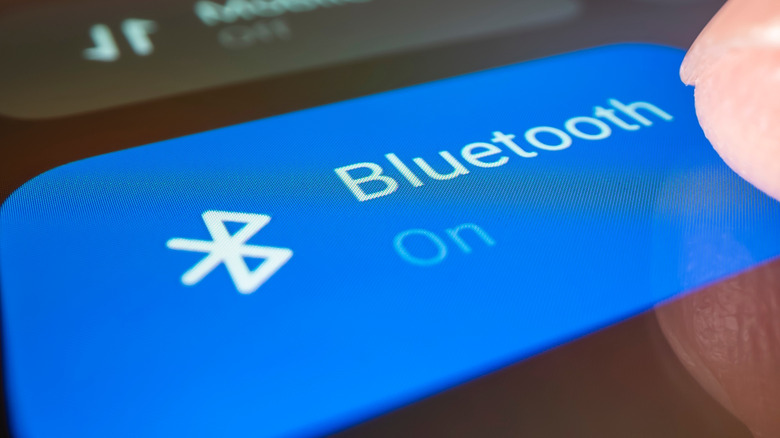Is Bluetooth Secure? Risks You Need To Know If You Leave It On Your Devices All The Time
Bluetooth technology has been around for over three decades, and it's one of those modern conveniences we rarely talk about. It makes our lives much easier by allowing fast, wireless synchronization with everything from audio and mobile devices to computer peripherals and health monitors. In fact, Bluetooth is everywhere, and there are even plenty of Bluetooth devices you probably never knew existed.
Because Bluetooth has become so effortless, we often leave it on all the time without a second thought. But before you do that, it's worth noting that, as convenient as it is, it also carries significant security risks that many people overlook. While Bluetooth is that silent link that makes your tech ecosystem work together, some people have unfortunately discovered that leaving it on can compromise your personal data security.
Of course, Bluetooth technology has greatly improved its security features and encryption over the years. But just like other wireless connections, it's not entirely safe. It is still vulnerable to different types of cyberattacks, like bluesnarfing and bluejacking. With that said, ahead we'll explore the common security risks you can encounter when you keep your Bluetooth on all the time, and what to do to keep your devices — and personal data — safe always.
Risks of leaving your Bluetooth turned on
Leaving your Bluetooth on is probably one of the most common cybersecurity mistakes you make without knowing. After all, we always use Bluetooth to shuttle data between two devices. This means that when you leave your iPhone's Bluetooth on, you're definitely broadcasting to hackers that your device is happy to connect to other devices. And once successfully connected, hackers could use the connection to send messages and Ads onto your phone, all without your consent.
Hackers could even use this technology to get tidbits of information that could help them to do things like apply for a credit card and purchase a car in your name. They could even access your sensitive data, like bank accounts, call logs, and passwords, and use this info to impersonate you online. And the worst part is that there will be no indication that your data has been stolen. Even worse, they could use your Bluetooth signal to track your movements. In fact, this is something that's common, as large retailers often use Bluetooth beacons not just to track clients, but also to gather detailed customer data.
What's worse is that these vulnerabilities do not apply only to smartphones. They apply to health devices as well. Of course, though it's quite difficult for hackers to target small devices like pacemakers or infusion pumps, if there is a motive, they could use this tech to interfere with wearable Bluetooth devices.
How to defend yourself against Bluetooth-related cyberattacks
There's no getting around it, but the more you leave your phone's Bluetooth on, especially in public places, the more you risk sharing too much information with hackers. As such, you'll want to absolutely ensure that you have your Bluetooth turned off when you're out and about. And if you're constantly using your Bluetooth (maybe you've paired it with your headphones), ensure that you turn off the auto-reconnect settings.
Additionally, you should set your Bluetooth connection to be undiscoverable by default. After all, you don't want your devices to start connecting to networks you know nothing about. Also, don't forget to update all your devices. You may assume you're safe if you're used to switching off your Bluetooth. However, if your smartphone or laptop's operating system is not up-to-date, your devices could be vulnerable to BlueBorne attacks. And unfortunately, this is quite a serious problem, as it will allow the hacker to have total control over your devices. This means they'll have access to your personal information and even your camera and apps.
Aside from updating your devices, you'll want to refrain from accepting any Bluetooth pairing requests that pop up unexpectedly on your devices. It's also a good practice to review and regularly check your phone's app permissions. After all, most apps often use Bluetooth and Wi-Fi to track your location and even access your contacts. Lastly, consider deploying a Virtual Private Network (VPN). Sure, it's not foolproof. However, it will add an extra layer of security against cybercriminals. This is done by hiding your real IP address and encrypting data.


